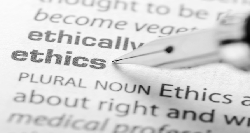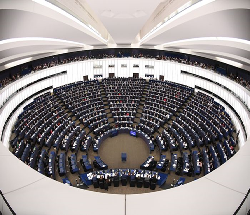June 2019 Research, science and knowledge
Read the articles selected in June 2019
Reflections on University Research Assessment
Source: eua.be
If the progress of science is a matter of sharing, the pressure put on reserchers by a system of assessment more quantitative than qualitative can hinder the realization of an Open Science. This briefing intends to endorse the responsibility of the institutions to develop more responsible procedures of assessment.
Read more:
Helsinki Initiative on Multilingualism in Scholarly Coommunication
Source: eua.be
This initiative is a call to researchers, research institutions, research funders, policy makers, to support the dissemination of research results in a variety of languages, for the full benefit of the society, and promoting language diversity in research assessment evaluation and funding system.
Read more:
https://www.helsinki-initiative.org/
Chinese Phd students a risk to West in some fields, v-c warns
By John Ross
Source: Times Higher Education, 16 May

For national security concerns Western universities could be forced to deny Chinese students the access to doctoral courses in sensitive areas like quantum computing or cybersecurity that could develop militar applications, since it’s getting ever harder to draw a line between civilian and military research.
Read more:
Preparing students to find a work instead of a job
By Ron Mc Gowan
Source: University World News, 8 June
The most important challenge of educational systems is to prepare students to find a work, rather than a job. Faded away all the benefits of a steady job, students should be encouraged not only to invent the own work, but also to marketing themselves in entrepreneurial terms to meet the needs of the employers.
Read more:
https://www.universityworldnews.com/post.php?story=20190604153917351
The persistence of socio-economic disadvantage in education
Source: oecd.org, 3 May
Disadvantaged students are less likely to shift from upper secondary to tertiary education, also because they are overrepresented in upper secondary vocational programmes. Some countries are adopting transitional pathways that remove entry barriers to higher levels of education.
Read more:
https://oecdedutoday.com/socio-economic-disadvantage-education-inequity-inequality-policy/
Journal transparency rules to help scholars pick where to publish
By Rachael Pells
Source: Times Higher Education, 4 June
After new mandatory conditions established by Plan S, journals must publish a detailed description of their editorial policies and decision-making processes, meaning to create more transparency and to support principles like those stated by San Francisco Declaration on Research Assessment.
Read more:
Integrating academic recognition and quality assurance: practical recommendations
Source: eua.be
“Linking academic recognition and quality assurance” is a project which intends to develop academic recognition practices fair and effective through a system of both internal and external quality assurance, recommending in particular an appropriate institutional infrastructure with tasks of support and monitoring.
Read more:
https://eua.eu/downloads/content/lireqa_recommendations_final_version_web.pdf
What can I do? What can we do? What can we do…together
By Angel Gurría
Source: oecd.org
In a world where technology meets emotions, there is hope in a progress more human. Digitalization and globalisation have created wealth and knowledge, but have left behind half of the world’s population. Here are the opening remarks by Angel Gurría at the 2019 OECD Forum.
Read more:
http://www.oecd.org/forum/oecd-forum-opening-remarks-may-2019.htm
How to achieve the highest ethical standards in scientific research
Source: CORDIS

The European TRUST project , set up to prevent the exportation of ethically unacceptable and non-compliant research practices to poor countries has developed ethical standards in research around the world, as well as a guidance for unintentional ethics dumping.
Read more:
https://cordis.europa.eu/news/rcn/131283/en
Measuring and assessing talent attractiveness in OECD countries
By Michele Tuccio
Source: oecd.org
National economies rely on talented and skilled individuals. Enterprises and governments compete globally to attract skilled workers. This paper provides a map of talent attractiveness measured through innovative indicators that show several dimensions influencing the choices of highly-skilled migrants.
Read more:
University mergers in Europe
Source: eua.be
When one or more institutions cease to exist legally to be incorporated into a new one or in an existing one there is a merger or incorporation. This paper maps the trends in Europe relating it to different structural factors or purposes in each country.
Read more:
https://eua.eu/downloads/publications/eua%20merger%20brief%202904.pdf
Recommendation of the Council on Artificial Intelligence
Source: oecd.org
After the Ethics Guidelines for Trustworthy AI, the AI Principles on Artificial Intelligence endorsed by the EC intend to develop a technology directed to benefit our societies and economies, as well to facilitate inclusive growth and sustainable development.
Read more:
https://legalinstruments.oecd.org/en/instruments/OECD-LEGAL-0449
Scientists want to help restore Notre Dame, hoping to make new discoveries in the process
By Tania Rabesandratana
Source: Science, 24 May
The rests of Notre Dame Cathedral are a field open to scientific research dedicated not only to the restauration and to discover the causes of the fire, but also an extraordinary opportunity to get elements and materials buried for Centuries under the building and interessant for a broad range of disciplines.
Read more:
Oxford Universitiy agrees to let in disadvantaged students with lower grades
By Gabriella Swerling
Source: The Telegraph News
A breakthrough in its radical admission process has been announced by Oxford University with a new recruitment programme for disadvantaged students which will grant 250 state school students free tuition and accommodation from 2020.
Read more:
How European scientists will spend $100 billion
By Alison Abbot&Quirin Sciermeier
Source: Nature, 22 May

Horizon 2020, approved by the European Parliament short before the elections is worth of 100 billion delayed over 7 years. It presents the Europe Innovation Council, which not only funds innovative start-ups, but also helps sustainable development and climate-related research.
Read more:
https://www.nature.com/articles/d41586-019-01566-z

